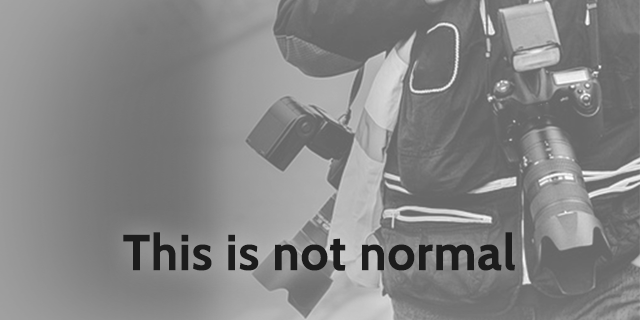One of the subjects that I struggle with as a young journalist is figuring out the difference between objectivity and neutrality. For example I remember telling a friend how upset I was after the United States elected Donald Trump as their president. He told me that since I was a journalist I shouldn’t feel upset because it would cloud my ability to be able to cover Trump fairly.
I could not disagree more.
That’s why I was especially inspired by the first lineup of speakers at Tuesday’s Teach-In. The panel put to rest the notion that journalists have to be “neutral” when covering a President who often lies, bullies and alienates people—especially women and minorities. The Torontoist’s Andrea Houston said it best when she exclaimed: “journalists aren’t blackboards!” We are human beings and it’s our job to hold those in power accountable. But that doesn’t mean we are forced to stay silent when we spot injustice. Calling out injustice doesn’t mean that we are biased because injustice isn’t a matter of opinion. That doesn’t mean, however, that journalists can say whatever they want without supporting their claims. But when Trump attacks women, Hispanics and Muslims it is our duty to shine a light and remind people that this is not normal—because it’s not. Like Andrea said, we have to go back to basics and be the frontline watchdogs that journalists are meant to be.
In fact, Toronto Star columnist, Shree Paradkar, pointed out that it’s actually our job to speak up, point out invisible racism and make sure that we don’t allow for the normalization of bigotry and an aversion towards arbiters of news and information. Shree and Andrea reminded me that it’s still ok to speak up. Very often as a journalist I hesitate to speak my mind or write a Twitter post that might be controversial so as to not reveal any bias. These days, though, it’s almost impossible to stay silent. Normalization was the key word of the session and I was so glad that Shree pointed out that just because Trump didn’t lash out at his Congressional speech, that that meant that what he said in his speech was ok. Whether speaking up is the same as being an activist—I’m not so sure—but what I do know is that basic human decency and kindness is not a matter of opinion.
Finally, I want to touch on something that Lenny Carpenter mentioned, which I think is extremely important: people turn to media to fill in their gaps in knowledge. If speaking truth to power is now too biased then how in the world will those with privilege learn anything about injustices endured by those who are less privileged? They won’t. That’s why journalists must keep speaking out because if we don’t who will?






